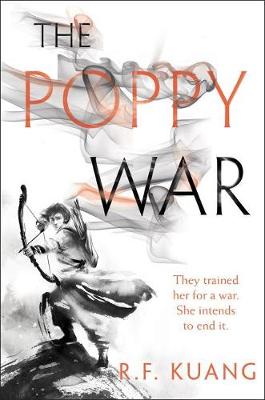Reviewed by luddite on
The pacing is very good overall, but it flags at the 60% mark. I think that's a deliberate choice - Rin lacks agency in this stretch of the book, being more of an observer, and that's reflected in the writing. Altan's character and the portrayal of the gods serves as a good canvas to reflect on how we ascribe external justifications for our violence, and the enduring effects of this violence.
It gets brutal and violently graphic later in the book; I had to stop reading for a bit. But I guess that's the point when you're talking about the unforgivable horrors of war. This particular portrayal will stay with me.
Pick up this book if you're a history buff and love the competitive school fantasy trope. This series holds great promise.
Reading updates
- Started reading
- 6 January, 2019: Finished reading
- 6 January, 2019: Reviewed
